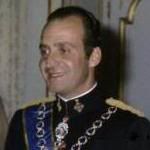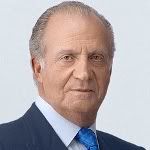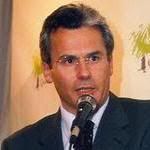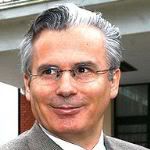Top Comments appears nightly, as a round-up of the best comments on Daily Kos. Surely you come across comments daily that are perceptive, apropos and .. well, perhaps even humorous. But they are more meaningful if they're well-known ... which is where you come in (especially in diaries/stories receiving little attention).
Send your nominations to TopComments at gmail dot com by 9:30 PM Eastern Time nightly, and indicate (a) why you liked the comment, and (b) your Dkos user name (to properly credit you) as well as a link to the comment itself.
I am not someone who has many heroes in life. I'm usually too iconoclastic for hero worship - plus, it's less embarrassing if someone is later found to have had some serious skeletons in life. Conversely, I'm always eager to find a good quality or two in otherwise unappealing people ... I suppose it is the even keel inside me at work. And that's one reason why it took the far-right drift of the GOP to turn a moderate centrist like myself into a liberal activist.
But I do have some heroes. One is the NBA Hall of Fame player Bill Russell who may yet have a statue dedicated to him in Boston, as President Obama suggested recently.
Two others come from the nation of Spain - both prominent men with different backgrounds whom I admire for different reasons, and are the focus of tonight's diary.
I am not an admirer of royalty (as it perpetuates the effects of who one's parents are) - yet nor am I someone who agitates against it; I'm usually indifferent. But one monarch I had a good feeling about originally is Spain's King Juan Carlos - and for whom my respect for has only increased over time.
But don't just take my word for it: in 2008 he was voted the "most popular leader in all Ibero-America" including those who do not normally cotton to royalty - and especially those worried about what sort of leader he would be when he assumed office - but who see in him a model for what a constitutional monarch should be.
He was actually born in 1938 in Rome, Italy - where his grandfather King Alfonso had settled after the Spanish Republic was proclaimed in 1931. He moved to Spain as a ten year-old when his father (the Count of Barcelona) was able to persuade Francisco Franco that they were supportive of his subsequent dictatorship, and Prince Juan Carlos graduated from Spain's national military academy.
Francisco Franco was not eager to restore the Spanish monarchy, making himself a president-for-life. But in gratitude for the support of royalists during the Spanish Civil War and thereafter: he agreed to appointing as his successor an absolute monarch. Franco distrusted Juan Carlos's father, though, suspecting him of insufficient loyalty and eventually settled upon Juan Carlos as his successor.
Juan Carlos was publicly supportive of Franco and appeared with him at many Fascist functions, leading most to assume that he would continue Franco's policies once in power. Secretly, it turns out, he communicated with opposition political leaders, exiles and with his father: all of whom impressed upon the young Prince the need to lead Spain away from its backwater status in Europe.
Upon the death of Generalissimo Francisco Franco (and Chevy Chase is still correct about that status) in the autumn of 1975 - the new King Juan Carlos had the powers of an absolute monarch. But over the course of the next year, he indicated that he desired only the status of a constitutional monarch: appointing a prime minister, meeting with leaders of various left-wing parties, drafting a new constitution that earned a strong majority in a nationwide referendum and pressing for legalization of the Communist Party - all of which earned the ire of Fascists and royalists alike.
Five years later in 1981, though, they hoped for a change-of-heart: when a military coup held the members of the Cortes (Spain's Parliamentary lower house) hostage, seeking a restoration of a dictatorship. It collapsed when Juan Carlos - wearing his military uniform - addressed the Spanish people on television and telling the armed forces, in effect, "to return to the barracks". Following this, even Spain's left acknowledged the achievement of the King, when he could have accepted an absolute monarchy by simply saying, "Si". Not many people relinquish power voluntarily.
I am not an expert on Spanish politics, and there are probably some aspects of his rule that are unsavory (the nation's penal code does have some laws against undermining "the honor of the royal family") and certainly there is no guarantee his successor will carry on his practices. Yet he does seem to have a democratic heart: when a 2005 bill legalizing same-sex marriage came up in the Cortes, his response to whether he approved of it ..... he gave his assent to it.


Other than, say, during royal weddings: his name does not come up much in the US media - but in November of 2007 he became international news. And this came about during a conference of leaders from Spanish-speaking countries around-the-world held in Santiago, Chile - when he grew tired of listening to Venezuela's president Hugo Chavez ranting.
At this point, I should acknowledge that some on the left are supporters of Chavez. Certainly, the failed coup that George W organized to remove him was disgraceful (and a legacy of how the US has hurt itself around the world). And even before that: Chavez was perhaps the most vocal critic of W (comparing him to the devil, for example, at the UN) plus the fact that his (noble) stated goal is to get a better deal for Venezuela's poor makes him appealing to some lefties. Duly noted.
Despite all that: as a liberal I find Chavez a demagogue at best - and at worst .. well, let us leave it at that.
At the Ibero-American Summit, Chavez was yelling at Spain's socialist prime minister José Zapatero - positing that his conservative predecessor José Aznar (one of George W's allies) supported the failed coup, and was not only a fascist but also "less human than snakes". The normally calm Zapatero noted that he was completely opposed to his predecessor's policies but defended Aznar as having been a democratically elected leader of Spain. Yet Chavez kept interrupting Zapatero to the point where the King had heard enough, saying:
¿Por qué no te callas? - ("Why don't you shut up?") - and using the tu (familiar) form that one might use in speaking to a spoiled child.
This retort became an instant hit world-wide (although prime minister Zapatero did not realize this until he returned home from the summit and his eldest daughter greeted him with "¿Por qué no te callas?" - to which they both laughed). It became a popular ring-tone in Spain for 1/2 million people, appearing on t-shirts - and it has been estimated the Spanish royal family could earn multi-millions were it to claim rights over the use of his voice ..... but they have not done so. Thus ... we see videos such as the following:
Again, I am not a royalist, and I am sure a European reader could interject, "But Ed: don't you know the King has supported 'x' and opposed 'y' in the past?" But if I ever had to vote for a monarch - he'd be my choice.
-----------------------------------------------------------------------------------------
Moving from the executive to the judicial branch in Spain - my other Spanish hero is Judge Baltasar Garzón who has been a bulwark against allowing despotic dictatorships to remain at-large. And interestingly: Judge Garzon gave no early indication of what he sought later to achieve.
As a judge on Spain's Audienca National (Central Criminal Court) he oversaw serious cases of terrorism, organized crime and money laundering. After leaving the bench for a short leave-of-absence as a minister for Socialist prime minister Felipe González he returned and did the things one would expect of such a jurist. Among them: leading a series of investigations that led to the conviction of a Socialist interior minister as the leader of a terrorist group, pursuing the Basque liberation terrorist group ETA, drug cartel operations in Spain, corruption charges against the mayor of Marbella ... again, what you'd expect.
But beginning in 1998, he became famous for pursuing cases involving right-wing dictators. This began when the retired Chilean dictator August Pinochet flew to London for a visit with Margaret Thatcher. Garzón noted that - having left his cocoon in Chile - he could now be prosecuted under the legal theory of universal jurisdiction (for an international crime) based on Chile's 1991 Truth Commission report that Pinochet tortured and killed Spanish nationals. Margaret Thatcher was appalled, and Britain's Home Secretary Jack Straw denied Garzón's extradition request (on health reasons, although Pinochet wound up living for another eight years).
Next, Garzón issued charges of genocide against two Argentine military officers for their role in the military dictatorship there in the 70's-80's. And both officers were convicted for the 'disappearance' of Spanish citizens, one receiving a sentence of 1,000 years.
In a case that certainly delighted DK readers: in 2009, Garzón pursued investigations as to whether Spain could issue indictments for allowing torture against what became known as The Bush Six - Alberto Gonzales, John Yoo, Douglas Feith, Jay Bybee, David Addington and former defense Department counsel William Haynes II (though nothing ever came out of this).
He hasn't only prosecuted right-wingers the past few years; he did pursue indictments against five Guantanamo detainees, and one Spaniard was extradited back home in 2004. And today, Judge Garzón is working at the International Criminal Court at The Hague.
But he is there because of one investigation he pursued: an investigation into crimes against humanity committed by ... the Franco regime of Spain itself. That was cutting too close to home, and various Francoist groups filed charges with Spain's Supreme Court to have Garzón banned from the bench - citing (among other things) a 1977 general amnesty act absolving any criminal activities related to the Franco regime. Thus, by inference, no investigations thereof are to be permitted.
Garzón has been suspended pending a decision on these charges; hence his working now at the ICC in The Hague. He did receive support from the International Commission of Jurists and was just featured in a documentary entitled Listening to Judge Garzón - shown at the Berlin Film Festival - in which he reveals that the FBI intercepted several e-mails in which a British based neo-Nazi group allegedly plotted to assassinate him over his attempt to investigate the crimes of Franco.
Garzón's trial is scheduled to begin his summer - and this is an individual we should keep in our thoughts and prayers, hoping that our opponents will not be able to prevail.


Now, on to Top Comments:
--------------------------------------------
From Dragon5616:
In David Waldman's front page story Fake 'Koch' call to Walker uses HR 3 arguments against unions, archer070 explains why calling an argument "dangerous" can be.......well, dangerous.
From sardonyx:
In The Green Nugget's diary Are You An Ethical Consumer?, BARAKABETH describes what being an ethical consumer equates to for her.
In timmyc's diary on today's MD Senate Marriage Equality Vote, Tara the Antisocial Social Worker has some advice for opponents.
And from Ed Tracey, your faithful correspondent this evening .......
In the front-page story Sunday talks shows boycotting labor? - the subject of Wisconsin GOP Senate Leader Scott Fitzgerald's wife receiving a (preliminary) layoff notice in caused BruinKid to share a comment he saw on the TPM website: "Somebody needs to ask him how much his wife was paid and exactly HOW LITTLE she should be paid to keep her job".


